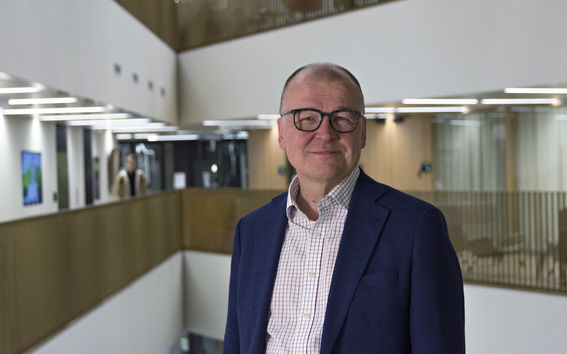Why the world’s happiest country (and yours) should think more about people’s wellbeing
How a country’s institutions take care of its people shows up in how satisfied people are with their lives

This article is the first of an English-language series on Finland and what makes the Nordic country's wheels turn.
Finland is known for things like drinking the most coffee in the world and its world-class education system. The country is also rumoured to have some of the highest tax rates in the world.
Does this hold true?
Finland’s highest marginal tax rate is close to 60% – that’s not to say people pay that much tax on everything they make. The marginal tax rate only touches the last euro of income earned and people falling into this tax bracket have an average tax rate of roughly 42%.
This method of taxation is called progressive taxation. In practice, the more money you earn the more taxes you pay overall, most notably in your higher marginal tax rate.

‘The marginal tax rate in Finland is on the high side, while the average tax rate is much lower. These are two different concepts that are often confused,’ explains Timo Viherkenttä, professor of practice in law and taxation at Aalto University.
While the average tax rate for high earners is not very different from other countries, what sets Finland apart is when the highest marginal tax rate kicks in.
‘In some countries you end up with a 60% marginal tax rate only on very high incomes, but in Finland this isn’t the case. An annual income of €100,000 is enough to earn it,’ says Viherkenttä.
So Finnish taxpayers are paying slightly higher taxes on the global scale, but those taxes are fuelling their vision of equality.
High taxes – if distributed appropriately and proportionately – can fund public institutions that allow a population to prosper.
In Finland, the consensus is that while the population pays higher taxes, they also get many funded social programs that promote health, happiness and a higher quality of life in return. These publicly-funded social programs are available to everyone, regardless of whether you’re rich or poor – promoting equal opportunity and a sense of community.

‘I think that health is a major factor in happiness. In Finland there’s always been heavy discussion around how to improve our healthcare and education systems – we prioritise these key initiatives so they’re not left behind,’ explains Viherkenttä.
Finland has taken a leading position in education for many years. From elementary school to college and university, Finland’s entire education system is one of the most publicly-funded social structures in the country, while remaining mostly free to its people.
And then there’s universal healthcare – another massive, publicly-funded social system. In Finland this means that having basic healthcare is not contingent on a person being employed.
‘Every citizen has access to healthcare. Basic needs and services for the average person are mostly free while more specialised needs that take high priority can cost a little more,’ Viherkenttä says.
For example, seeing a specialist in cardiology for a 45-minute appointment will cost you about €30. And with a yearly payment ceiling, you won’t pay more than €683 per year for any specialized treatments, hospital visits or surgeries.
A pension fund, also considered a tax of sorts, helps smooth the transition from work life to retirement – a time when people worry about what comes after ‘the salary’ – that thing that’s kept you in bread and silk for a majority of your adult life.
Timo ViherkenttäThe concept is simple: when you work, you earn pension for your future retirement.
The Finnish pension system is a mandatory system that everyone who works pays into.
‘The concept is simple: when you work, you earn pension for your future retirement. Your lifelong salaries determine the amount of money you’ll receive monthly once you retire. These funds are all managed professionally and this is one guess as to why Finns are happy with their country, and its infrastructure,’ says Viherkenttä, who was CEO of the State Pension Fund of Finland for five years.
‘Taxation – there’s two sides of the coin. It’s not a question of whether Finns are masochists and want to pay more. Finns get more social structure and safety with the higher taxes they pay. Nevertheless, we have to be vigilant that our tax euros are being spent efficiently,’ Viherkenttä concludes.
By Michele Lawrence

How a country’s institutions take care of its people shows up in how satisfied people are with their lives

Easy access to green areas and an environment of trust are some of the ingredients for success



